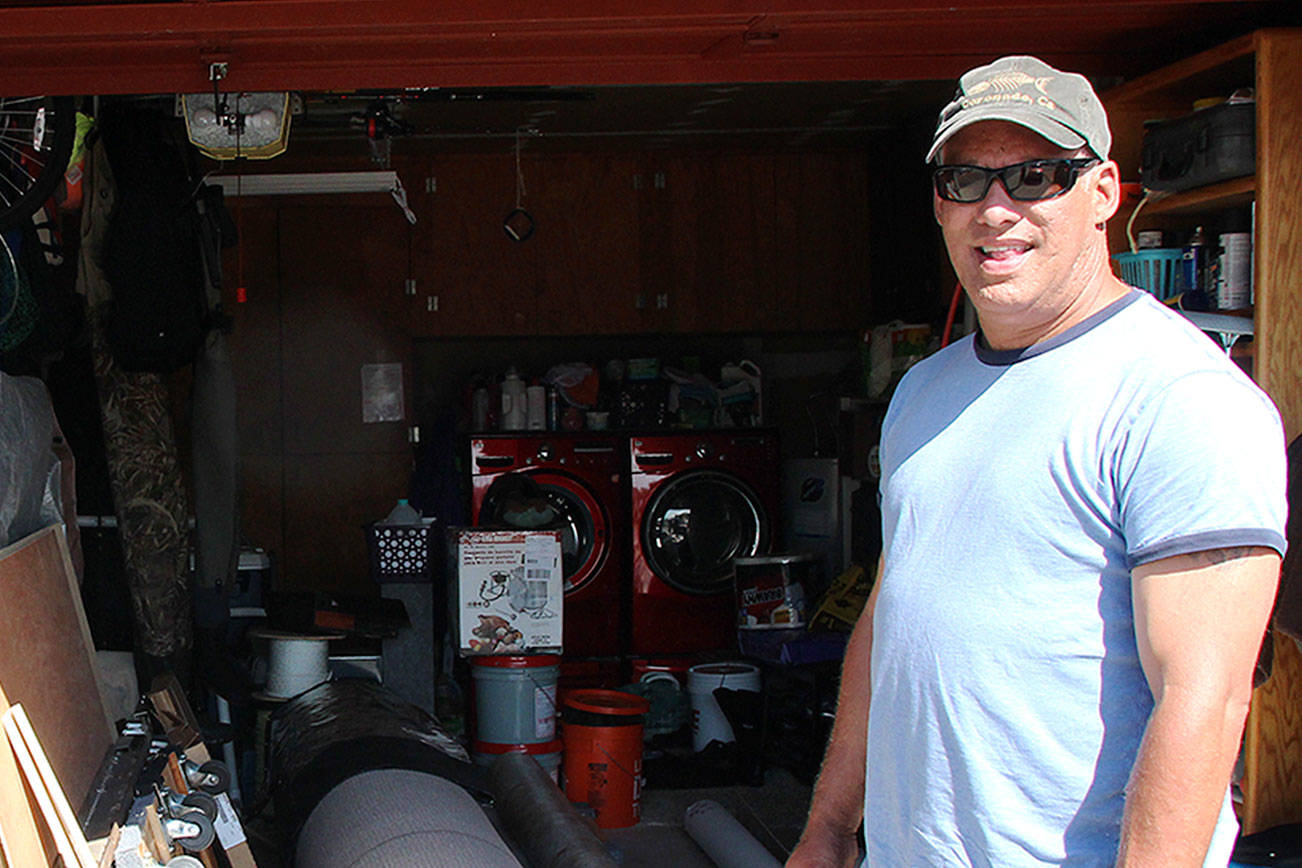Dave Madeiros knows well both sides of the homelessness issue.
Madeiros has been a resident of Oak Harbor since 1988 — when he first came to the city to sleep on someone’s couch.
Madeiros grew up in Hawaii and California as the youngest of 16 children. He began using drugs when he was a young man.
At that time he was living in California and came home to find that his mother sold the house and his bags waiting outside.
“She couldn’t take me anymore,” he said.
Suddenly, he was homeless.
Madeiros made his way north to Seattle, arriving there in 1988. He worked in the city for a short time and eventually came even further north to Oak Harbor to stay on a friend’s couch.
“That couch was actually very small and the house was very small – seven people, one bedroom,” he said.
He said he would walk down Taylor Road “to get away from all the craziness of a lot of people living in a bubble,” he said, and one day saw a modular home with grass as high as his waist. He heard someone at the house and found a man named Don Brouillard, who has since passed away.
After introducing himself, Brouillard told Madeiros he would pay him $5 an hour to fix up the house and let him rent it.
Madeiros said he only had $50 in his pocket at the time, but that he gave Brouillard his word that he would work on the house.
Brouillard bought all the supplies for Madeiros to use — paneling, water heater, windows —— and even let him use his truck.
“There were two and half years that I didn’t have to pay rent,” Madeiros said.
During this time, Madeiros also went into town to look for work. He found a side job doing maintenance and office work for local businesses on the weekends.
Though he had work, he still needed help to afford essentials. He went to the Help House and found other people on the island who were willing to help him.
He also remembers a woman near Deception Pass, whom he was told to call The Goat Lady, who would give him containers of milk for $1.
The turning point for Madeiros was when he decided to get sober.
“On Dec. 27, 1992, I walked into a recovery meeting in Oak Harbor, at the Knights of Columbus at that time, and that was my first day I got clean and sober.”
“I’ve been that way every since.” he said.
“I’d had enough. And when that happened, all kind of doors started opening.”
Since then, Madeiros repaired his relationship with his family, owned his own flooring business, become a homeowner, got married and led numerous mission trips and other outreach efforts with his church, Living Word.
Many of his mission trips and outreach efforts have been at home.
“You don’t have to go more than a block or two from your house really and just open your eyes and see the need here,” he said.
Madeiros and his wife, Dr. Dawn Keith-Madeiros, met long after he had been homeless.
He was honest with her about his past from the beginning.
“He’s transparent,” she said. “He’s come from nothing and now he gives back. He loves our community and he wants to feel that it’s still a safe place to bring our granddaughter, and it’s hard right now because you don’t feel safe on your own streets.”
Madeiros said there were not as many homeless people on the island during the time that he was in a similar situation.
“It was easy for me get the hand up. Now if I was homeless I don’t know what would happen,” Madeiros said.
“In our hearts we want to help people and we don’t want to seem heartless, but we don’t want see it destroy our community either … so helping someone get on their feet rather than giving them a handout – I think that’s the biggest distinction,” Keith-Madeiros added.
She suggested that more follow-up needs to be done with the homeless population – asking them what their name is, where they’re from, how they got to Oak Harbor — to create accountability and to determine the specific services that each person needs.
Both Madeiroses said that giving money to panhandlers or giving away help for free without questions is not the right way to help people.
Instead, Keith-Madeiros said, “give to an organization.”
“If you really desire to help somebody, go down to Spin Cafe and offer to make lunches,” she said.
Dave Madeiros said it’s going to take the whole community to fix the homelessness problem.
“I don’t know how to say this. But without the people of Oak Harbor helping me to help myself, I wouldn’t be here today. I would probably be dead—who knows,” he said.
He has ideas for how Oak Harbor can address the current homelessness issue, but he said that it’s going to take a community effort to fully solve the problem.
“I think it’s everybody’s issue to come up with a solution,” he said. “It’s not going to go away. God isn’t making any more land, he’s making more people.”



